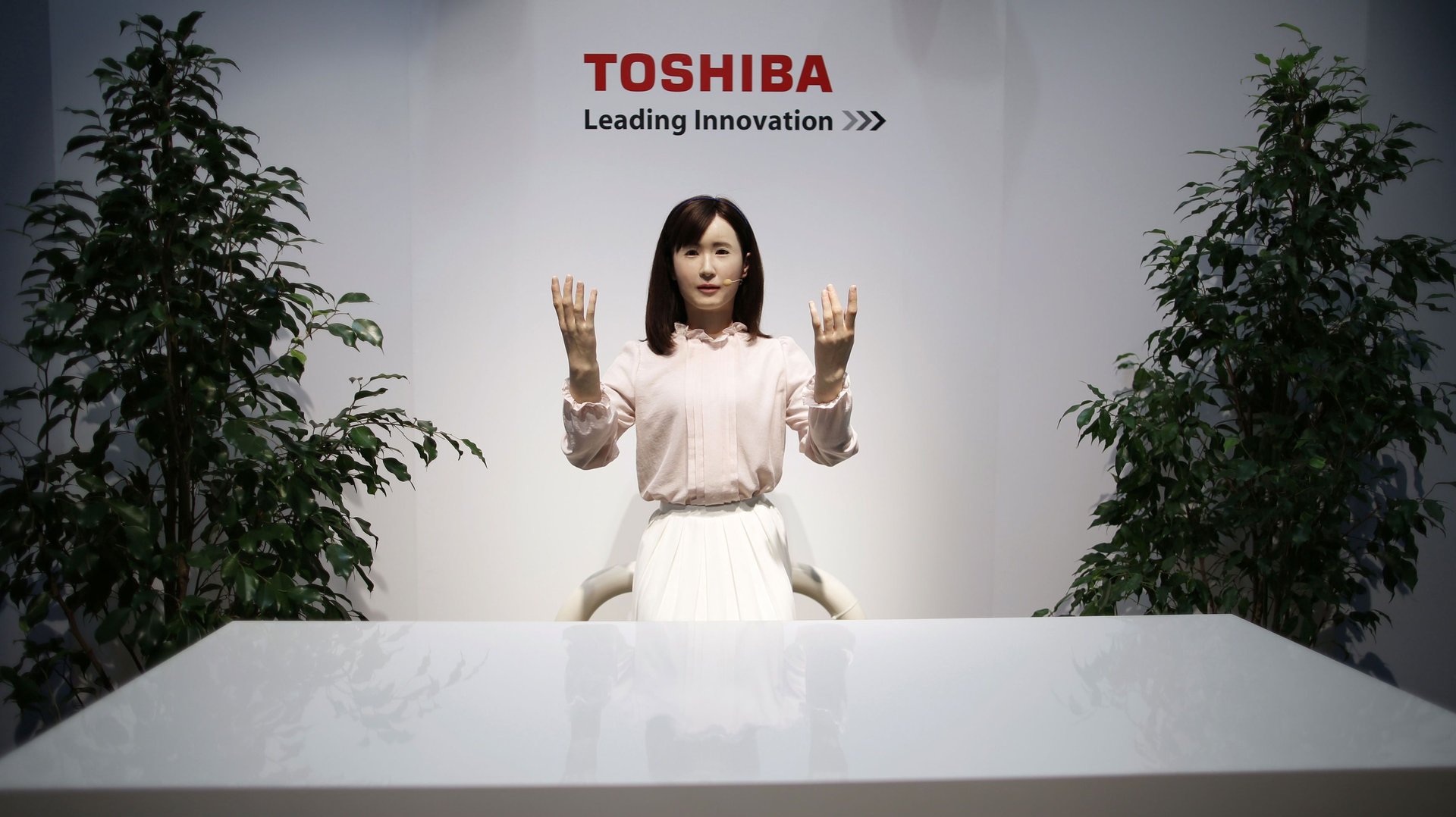Watch this very creepy android woman talk to you in sign language
Toshiba revealed its new “communication android” at CEATEC this week, adding it to the growing list of Japanese eldercare robots.


Toshiba revealed its new “communication android” at CEATEC this week, adding it to the growing list of Japanese eldercare robots.
Aiko Chihira, as the company has named her, can smoothly communicate in Japanese sign language. According to Toshiba, she has “the appearance of a friendly young woman, an impression accentuated by blinking eyes and a warm smile.” Decide for yourself:
Toshiba’s goal is for Ms. Chihira to become a companion for elderly people (especially those with dementia), not unlike Softbank’s elderly assistant “Pepper” (the major difference being Pepper actually looks somewhat like a friendly robot, while Chihira more closely resembles a malevolent horror movie creation hellbent on destruction).
But both robots are part of Japan’s attempt to deal with its diminishing workforce—a result of the country’s rapidly aging population. Japan is set to lose a third of its population over the next 50 years, and by 2060 over 40% of people will be over 65. That means they’ll need a lot more eldercare, but there won’t be enough nurses and caretakers to go around.
Eventually, Toshiba wants the android to also serve as a receptionist or event promoter for businesses. The company aims for it to be a fully functioning, sophisticated social robot by 2020, when the Summer Olympics come to Tokyo.